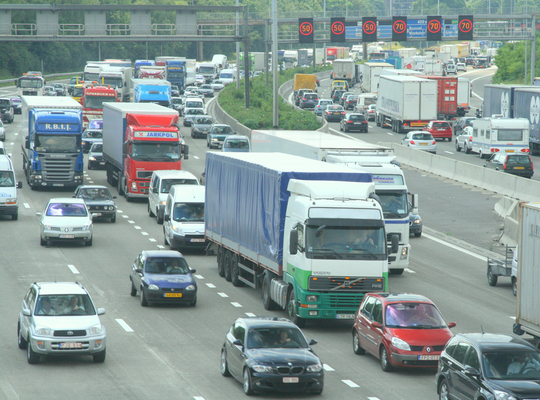You are here
The N-VA is critical of the idea of a green boulevard on the A12

Naturally, the Brussels plans to reduce the A12 in Brussels to just one lane were also discussed in the Flemish Parliament. Flemish MP Inez De Coninck, who lives in the Flemish periphery of Brussels, took the floor. “This will cause more traffic jams on the way into Brussels and will force commuters and visitors from Flanders out of the area, since alternatives such as the light rail and peripheral car parks are not yet available. The Brussels Government has not discussed these plans in any way with the Flemish Government. This is the same Brussels government that then complains that it is not sufficiently involved in other matters. This is not cooperative federalism but bullying federalism and hypocrisy.”
According to the plans, a three-kilometre section of the A12 motorway between the border with Flanders and the canal will be transformed into a green boulevard. The A12 will also become significantly narrower: to enter the city, there will first be a change from three to two and then to just one lane. Two lanes will be retained leaving Brussels, however.
No consultation with Flanders and none within the Brussels government, either
“The permit application for these plans has already been submitted by the Brussels administration, without providing for a test phase beforehand. According to Brussels Minister of Mobility, Elke Van den Brandt (Groen party), the works would start in 2022. Secretary of State Pascal Smet (Vooruit party), responsible for urban planning, immediately responded that he does not support his colleague’s plans and will not issue a permit for them. No consultation with Flanders and thus none within the Brussels government, either. What a spectacle,” Inez De Coninck says.
Brussels minister Van den Brandt believes cars will “evaporate”
Cieltje Van Achter, N-VA party leader in the Brussels Parliament, criticises the Brussels mobility minister’s urge to promote her party’s aims. “This way of working is characteristic of the green mobility policy in Brussels. Large-scale mobility projects are announced continually without prior consultation and without first being thoroughly investigated. Here again, it is not clear what the impact will be on mobility. You will find just about all the information you could imagine on the Brussels Mobility website, even including the type of shrubs that will be planted. But the administration is utterly silent when it comes to letting you know anything about the expected impact on traffic congestion. Minister Van den Brandt is quite clear. In her words, the cars will ‘evaporate’.”
As though Brussels were an island
It is not the first time that a unilateral decision by the Brussels-Capital Region threatens to have a major impact on mobility in other regions. Take, for example, the plans for a Brussels city toll that fortunately did not go ahead. “It is these kinds of measures that cause commuters and visitors to work outside the city. Decisions are again taken without consultation, as though Brussels were an island,” Inez De Coninck and Cieltje Van Achter say.

